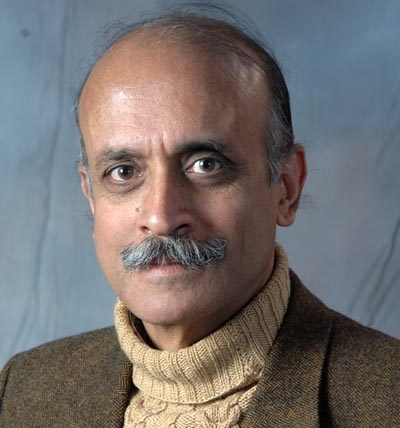Conference on ‘Indian Political Thought’
Keynote Address (Jan 8): Bangalore International Centre (BIC)
Main Sessions (Jan 9, 10): A&O Conference Hall, NLSIU Campus
Wednesday, January 8, 2025
The conference will take place between Jan 8-10, 2025.
The National Law School of India University, Bengaluru (NLSIU) is organising a three-day interdisciplinary conference that delves into Indian Political Thought (IPT) from January 8 to 10, 2025.
Aim of the IPT Conference
The conference aims to explore the historical foundations of Indian political thought, assess their contemporary relevance, and envision future trajectories. Renowned scholars, researchers, and practitioners will participate in critical discussions to analyse the dynamics, intersections, and evolving contours of Indian political thought and practice, offering fresh perspectives and valuable insights.
Conveners: Prof. Shruti Kapila (University of Cambridge) and Dr. Karthick Ram Manoharan (NLSIU)
Venue
- Keynote Address: Bangalore International Centre (BIC), January 8, 2025, 6.30 PM
- Main Sessions: A&O Conference Hall, NLSIU Campus, January 9-10, 2025
Schedule
The conference will kick off with a keynote address by Prof. Madhavan K. Palat at BIC on January 8, followed by panel discussions at the NLSIU campus on January 9 and 10.
Keynote Address by Prof. Madhavan K. Palat on “Nehru’s Democracy “
Date: January 8, 2025
Time: 6.30 PM
Venue: Bangalore International Centre (BIC)
Abstract
Nehru presented himself as liberal and socialist; and while he did not declare himself to be a conservative, he readily deployed Burkean and traditionalist arguments for the legitimation of Indian democracy. But he also warned repeatedly that democracy could destroy itself through a democratic dictatorship and the tyranny of the majority. He derived the sources of democracy from the panchayats of tradition and from the nationalist traditions from the 19th century, and he asserted that it had become the yugadharma after Independence. He always argued that democracy had to be a movement that was dynamic but with institutions that were stable. When these came into conflict, as they inevitably must, he chose movement over institutions. The movement emerged from nationalist mobilization, and the institutions from the Constituent Assembly and its Constitution. He never ceased to warn that the Constitution was not a sacred text and that democracy could be protected only by democracy, not by the Constitution. As such, he repudiated in effect any concept of a Basic Structure. He sought to extend parliamentary democracy through Panchayati Raj, reasoning that democracy must be broadly based like a pyramid lest it topple. But ambiguities stalked him. He looked upon panchayats as bureaucratic as much as democratic extensions; he was dismayed that the electoral system was run ever more by knaves and scoundrels rather than visionaries like himself; and he feared that democracy was breeding an elective aristocracy and oligarchy. While he was unhappy that the two-party system did not seem to be evolving in India, he presciently discerned that India was run by a two-ideology system of Congress and Hindutva which could, at some time in the future, become parties. He saw the vital need for a moral ideal, but his idols were Buddha, Ashoka, Akbar, and Mahatma Gandhi, none of them democrats except for Gandhi, who was confessedly autocratic while engaging in a democratic mobilization. The only consistently democratic ideal he could present was himself, but he found a personality cult vulgar and comic. He despised democracy as promoting the average and the dull, but he feared that inspiration, charisma, and lofty commitment seemed to lead into politics of the right, which he deplored. His politics consisted in reconciling contradictions of this sort and living with ambiguities and inconsistencies, preferring the pragmatism of the conservative to the theoretical clarity of the socialist.
About the speaker

Prof. Madhavan K. Palat was born in 1947 and read history at the Universities of Delhi and Cambridge. Thereafter he specialized in late Imperial Russian history and took the D.Phil. degree at the University of Oxford. He taught history at the Centre for Historical Studies, Jawaharlal Nehru University from 1974 to 2004, was Visiting Professor in Imperial Russian History at the University of Chicago in 2006, National Fellow at the Indian Institute of Advanced Study in Shimla 2010-2011, and was Editor of the Selected Works of Jawaharlal Nehru from 2011, seeing the project to completion in 2019. He is now the Secretary of the Jawaharlal Nehru Memorial Fund and is editing the online edition of the Nehru Archives, which will be as comprehensive as possible on Nehru rather than selective.
A selection of his publications may be accessed at www.madhavanpalat.academia.edu
View the schedule for the main sessions:
Venue: Allen and Overy, NLSIU
8.30-9.00 AM:
Tea and Welcome Address by Prof. (Dr.) Sudhir Krishnaswamy, Prof. Shruti Kapila, Dr. Karthick Ram Manoharan
PANEL I – LAW
9.00-11.00 AM
Panelists:
Sudhir Krishnaswamy
Moiz Tundawala
Sandipto Dasgupta
Moderator: Sidharth Chauhan
Tea Break: 11-11.30 AM
PANEL II – AUTHORITY
11.30 AM-1.30 PM
Panelists:
Shruti Kapila
Karthick Ram Manoharan
Arun Thiruvengadam
Moderator: Aishwarya Birla
Lunch – 1.30-2.30pm
PANEL III – VISIONS OF GEOPOLITICS
2.30-4.30 PM
Panelists:
Faisal Devji
Rahul Sagar
Moderator: Anindita Adhikari
Tea: 4.30-5 PM
Dinner: 7.30 PM
Venue: Allen and Overy, NLSIU
Tea: 8.30-9.00 AM
PANEL I – LIBERALISM
9.00-11.00 AM
Panelists:
Rajeev Bhargava
Salmoli Choudhuri
Rochana Bajpai
Moderator: Atreyee Majumder
Tea: 11-11.30 AM
PANEL II – CASTE
11.30 AM-1.30 PM
Panelists:
Chandan Gowda
Suraj Yengde
Shivani Kapoor
Moderator: Aniket Nandan
Lunch: 1.30-2.30 PM
PANEL III – RELIGION/SECULARISM
2.30-4.30 PM
Panelists:
Rinku Lamba
Gitanjali Surendran
Jessica Patterson
Moderator: Sushmita Pati
Concluding Remarks: Shruti Kapila and Faisal Devji
Tea and Conclusion of Conference

